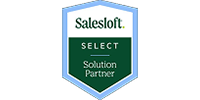Why Outsourced Sales Reps Should Be Logging Their Time
Although it is normally an overlooked practice, time tracking is an incredibly valuable tool, both operationally and strategically. Without it, sales leaders will struggle to compare outsourced salespeople to their internal counterparts, or make important decisions regarding which channels warrant additional investments. After working with hundreds of organizations to build and scale their sales programs, we’ve found that time tracking is the single best way to optimize sales performance, yet so few organizations do it. Let’s dive into the many benefits your organization can enjoy if you implement a time-logging system today.
Ease of Comparison
Many organizations decide to test their in-house reps against outsourced salespeople, usually because they are considering outsourcing their sales function completely, but aren’t ready to take the step without first validating that the outsourced route is more effective. As touched upon in our last blog, one of the main arguments in favor of requiring your outsourced sales teams to log their time is that doing so enables you to compare their performance against your in-house team.
For instance, if your internal team is logging ten hours a week to list management and research, while your outsourced team is doing 40 hours a week of pure outreach, your in-house team is at a disadvantage because the parameters of the competition are skewed. Your in-house team may be producing more meetings per hour of activity, but fewer meetings overall due to the high administrative burden placed on them internally. If you are running an A/B test in order to determine the viability of the outsourced model for your organization, time tracking is an absolutely critical component of that test.
Channel Performance Visibility
One key reason why outsourced sales teams should be logging their time is to provide visibility into channel performance. While your Cost Per SAL metric is a great way to determine a channel’s financial viability, it is also useful to look at efficiency from a time perspective.
For example, if you were to just purely look at meeting volume by channel, and see just one meeting a month generated from teleprospecting, you might deduce that the phones are not an effective way of reaching your target audience, and you may even decide to de-emphasize this channel altogether. However, if you check the timesheets and find that the sales rep only logged one hour of calling that month, that’s a different story. Teleprospecting may have actually been your most effective channel that month, and the time tracking data is telling you to shift focus there.
When reps are logging their time, you unlock new metrics and visibility not previously available in the CRM. Sales leaders can then make strategic pivots to ensure your demand generation program is as optimized as possible.
Identify Process Inefficiencies
In addition to identifying which channels are performing well (or not), logging time can also help your team identify existing inefficiencies in their processes and behaviors. For example, if you notice that your sales reps, internal or outsourced, are spending tons of time on admin tasks, you’ll want to dig into what these tasks are and why they’re taking so long. Is your technology stack lacking? Do you have the right list-pulling tools in place to minimize the amount of contact searching reps need to do?
The average sales rep spends only 35% of their time selling. That number should be closer to 80-90%, and you can only achieve that by measuring what is eating up their time currently. If your reps fail to track their time accurately, you lose the opportunity to see the potential for process refinement.
* * *
If your firm is considering outsourcing your sales function, but isn’t sure where to start, the FullFunnel team can help. We have built successful outsourced sales teams for hundreds of businesses across a broad range of industries. Request a consultation today to learn more about our process and how we go about building successful demand generation programs.











